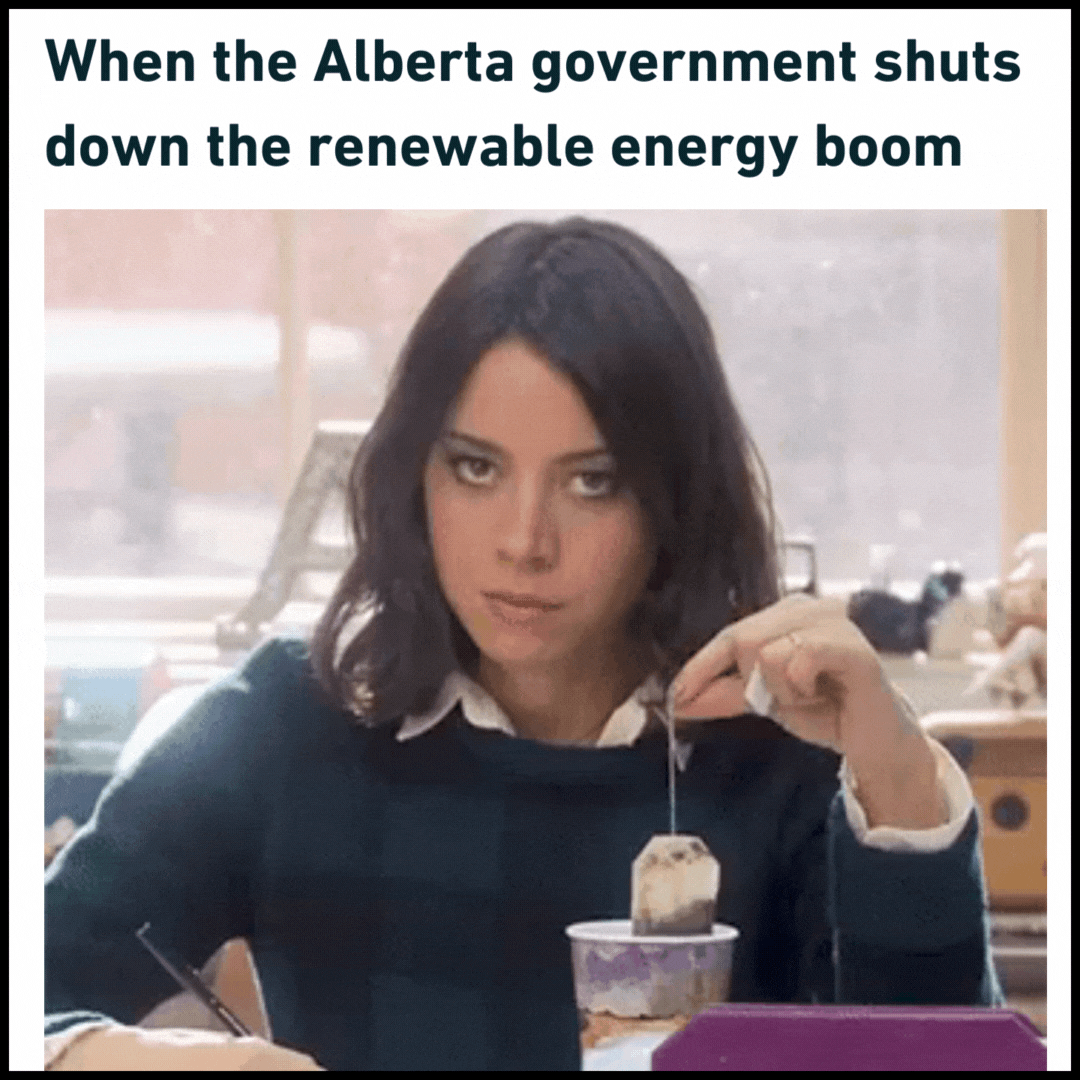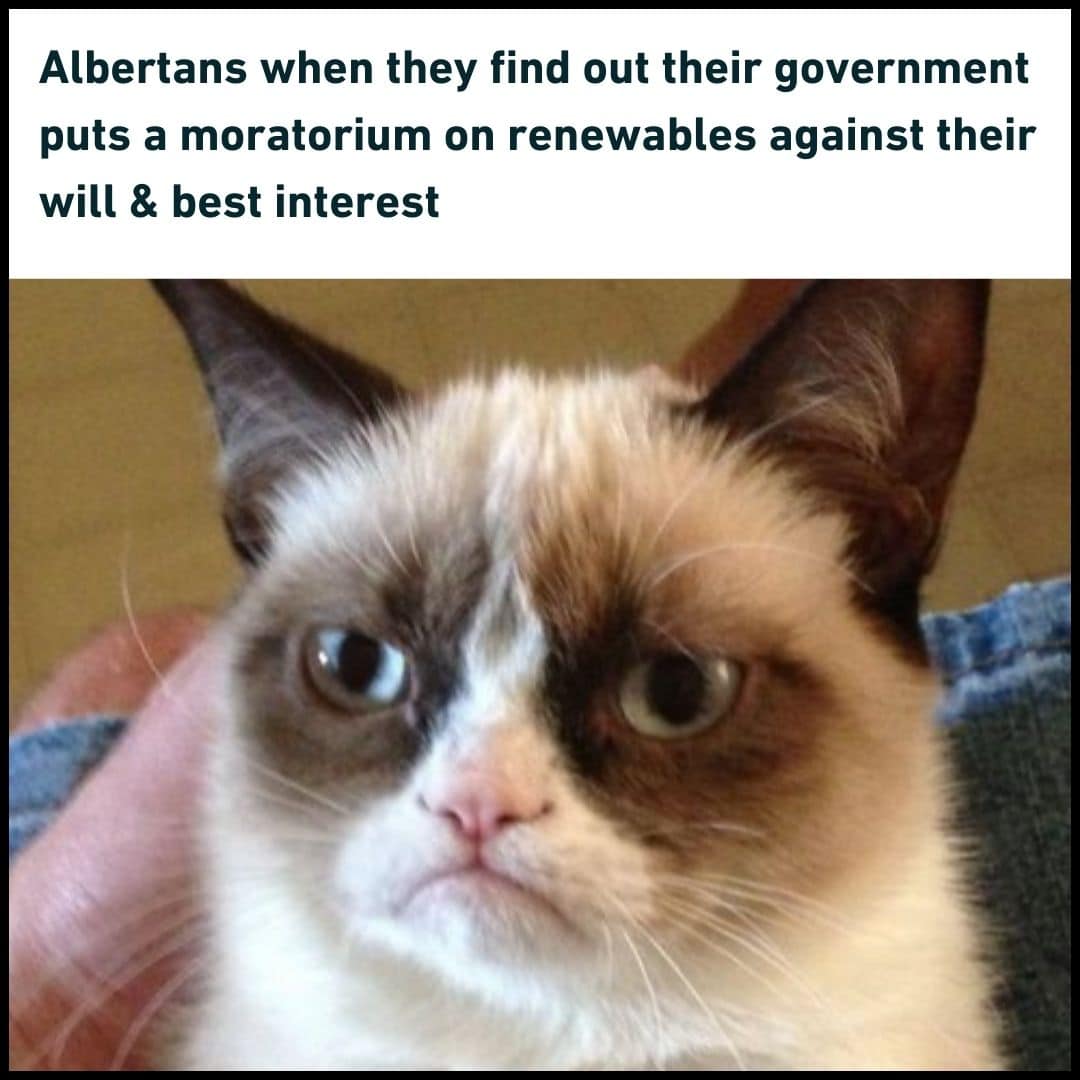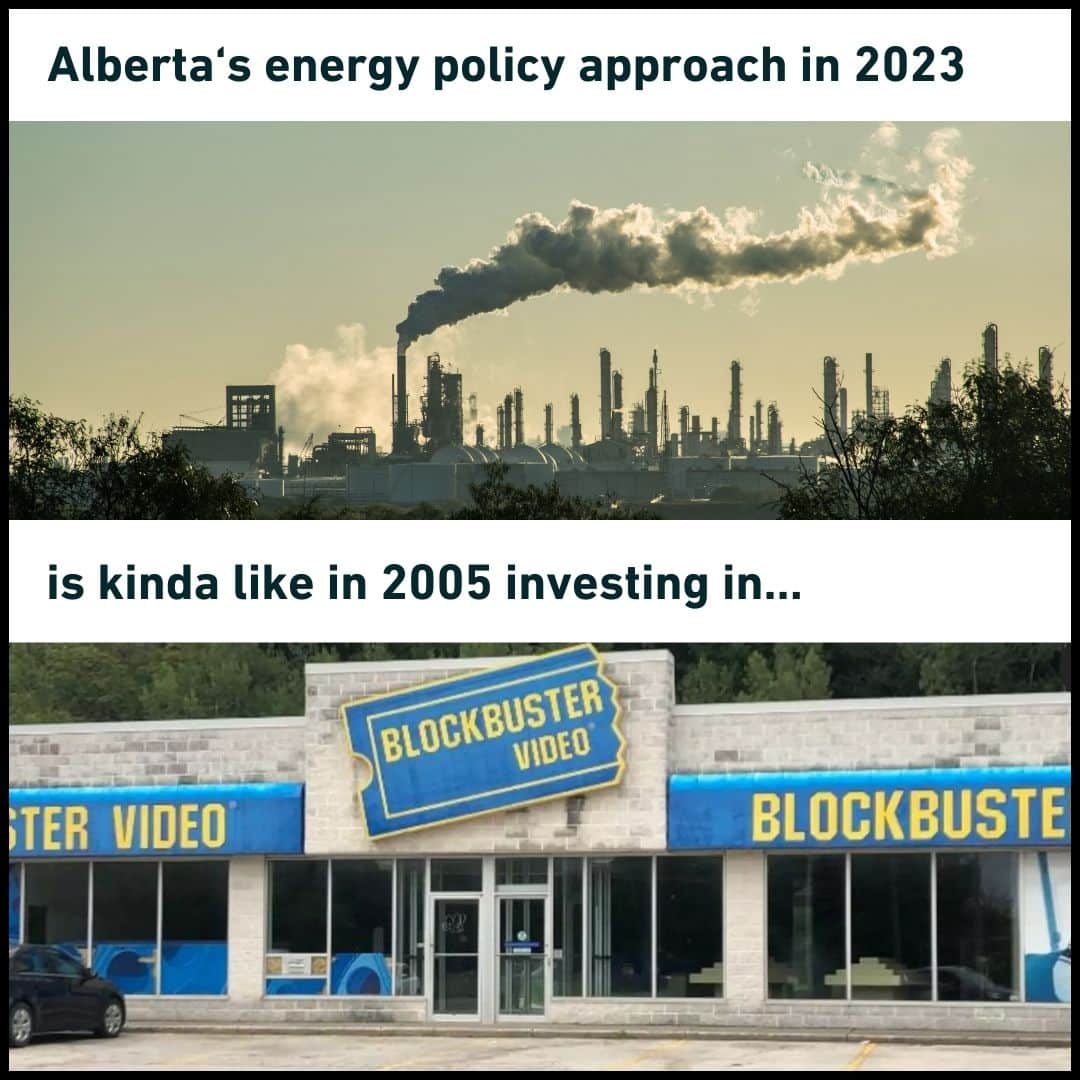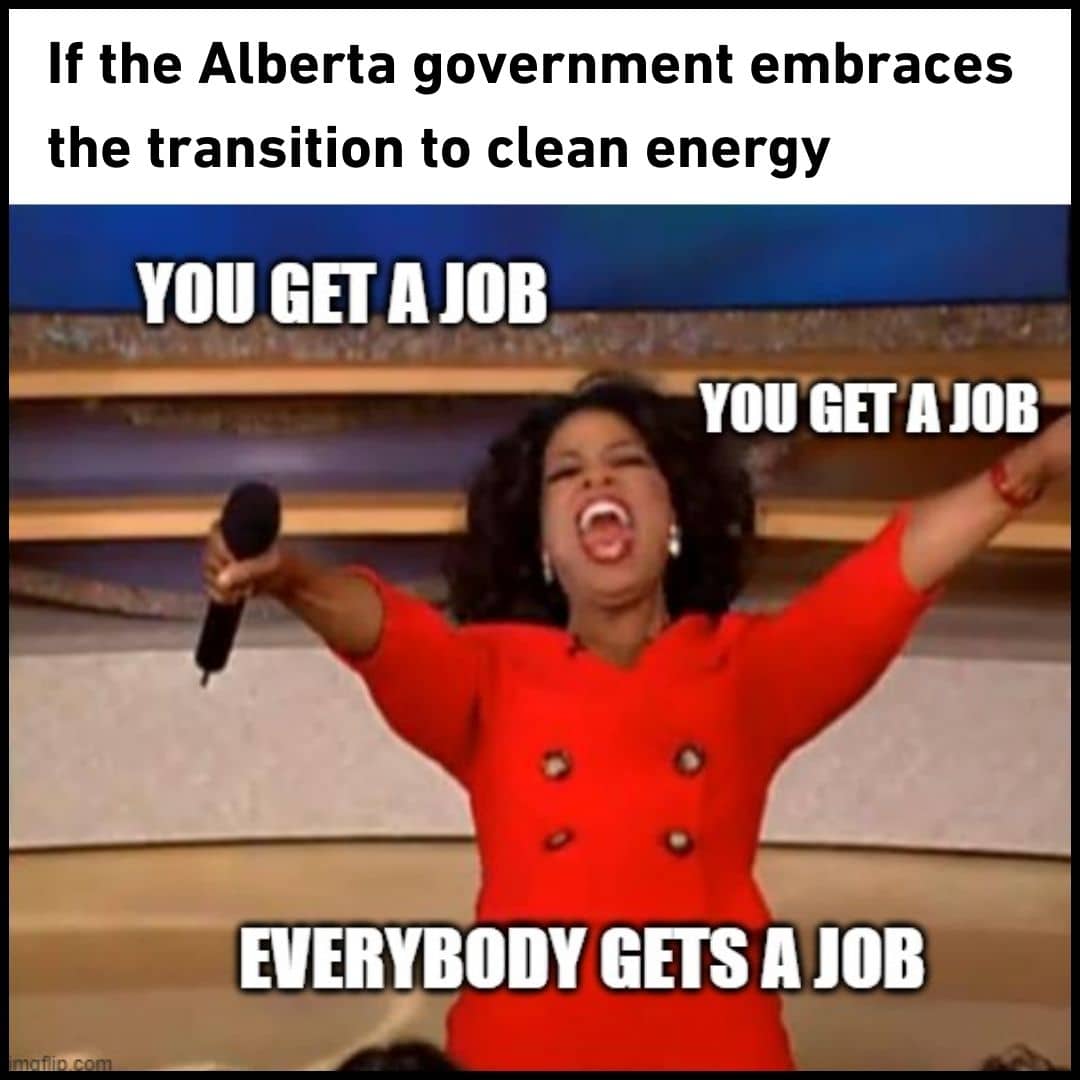The Alberta government is fighting the necessary, inevitable and beneficial transition to renewables. In August 2023 — during Canada’s worst wildfire season on record — the provincial government put a moratorium on renewable energy projects. It’s also opposing climate policies that support the transition to clean energy and lower emissions from oil and gas, Canada’s most polluting industry.
Why this is a huge mistake for Alberta:
1. It puts 24,000 jobs and $33 billion in renewable electricity investments at risk

The Alberta government admits its renewable industry has been a roaring success. Its website says “as much as 75% of the renewables investment that happened in Canada last year, happened in Alberta.” The government moratorium on renewable energy puts 24,000 jobs and $33 billion in renewable-resource-generated electricity investments at risk and delays 118 renewable projects in development.
Freezing this growth at this critical time may be one of the worst, most short-sighted economic decisions ever made by a provincial or territorial government.
2. Most Albertans support renewables and want to see oil and gas emissions regulated

The province’s staunch opposition to federal climate policies and regulation is not what Albertans want. According to an Abacus Data poll from July 2023, 64 per cent support the federal government’s regulations designed to ensure that Canada’s electricity grid is 100 per cent clean by 2035. Two polls released by the Canadian Association of Physicians for the Environment in September 2023 showed that six out of 10 Albertans (62 per cent Research Co.; 57 per cent Leger) want a nationwide cap on oil and gas emissions, with support strongest among those aged 18 to 34 (76 per cent Research Co., 69 per cent Leger).
Compare the benefits to the province from renewables (jobs, revenue, more affordable electricity) to the toxic legacy of the oil and gas industry (contaminated sites, dwindling jobs, climate change). It’s no surprise that Albertans want to usher in a booming renewable industry and see the oil industry held accountable for its pollution.
Hold Big Oil accountable for their pollution3. While claiming to be affordability champions, the Alberta government is fighting against the cheapest form of electricity in history (solar)

Like the rest of the country and the world, Alberta has been struggling with inflation, high cost of living and a housing crisis. The provincial government is a self-proclaimed affordability hero. Yet it's pushing back on the transition to renewables — even though solar is now the cheapest form of electricity in history according to the International Energy Agency’s World Energy Outlook 2020.
On top of their low cost, renewables are predictably priced — unlike the volatile global oil market. If the province is sincerely concerned about affordability, it would maximize its abundant and cheap renewable resources. It’s almost as if they’re fighting to keep energy costs high to protect oil and gas profits — at Albertans’ expense.
4. Demand for fossil fuels is set to decline while renewables skyrocket

The fossil fuel era is ending. In its 2023 World Energy Outlook, the IEA predicts global oil and gas demand will peak by 2030, as the shift to a clean energy economy rapidly picks up its pace.
Regardless of your position on climate change, it’s clear that the way the world is powered is changing. To remain relevant and prosperous into the future, oil-producing jurisdictions must diversify their economies and energy sources.
If Alberta wants to continue to be an energy superpower, its political leaders must embrace the province’s abundant, lucrative renewable energy potential.
Say YES to affordable, secure, renewable power by 20355. A clean energy transition = more jobs for Albertans

A 2023 Clean Energy Canada study shows that transitioning to clean energy and achieving net-zero by 2050 would mean more total energy jobs in Alberta than there are today. “Specifically, there would be 419,000 Albertan clean energy jobs added by mid-century — far more than the 324,000-job decline projected in fossil fuels.” Alberta would see a 10 per cent increase in energy jobs every year, the fastest growth of any Canadian province or territory.
Contrast this with dwindling oil patch jobs. According to Calgary-based PetroLMI’s Labour Market Outlook, the provincial oil and gas industry lost 26 per cent of jobs from 2014 to 2023. As automation evolves, computers and machines do the work and humans supervise the technology. As shown by Suncor and Imperial’s layoffs, those jobs are not coming back.
Join the 21st century
The world is finally rising to the challenge of the increasingly urgent climate emergency and affordability crisis. Renewables, heat pumps, energy efficiency, electrification and electric cars are all soaring. If Alberta wants to benefit from this century’s greatest energy opportunity instead of following a dying 19th century fuel, it better get on board.
Related Projects
Always grounded in sound evidence, the David Suzuki Foundation empowers people to take action in their communities on the environmental challenges we collectively face.



